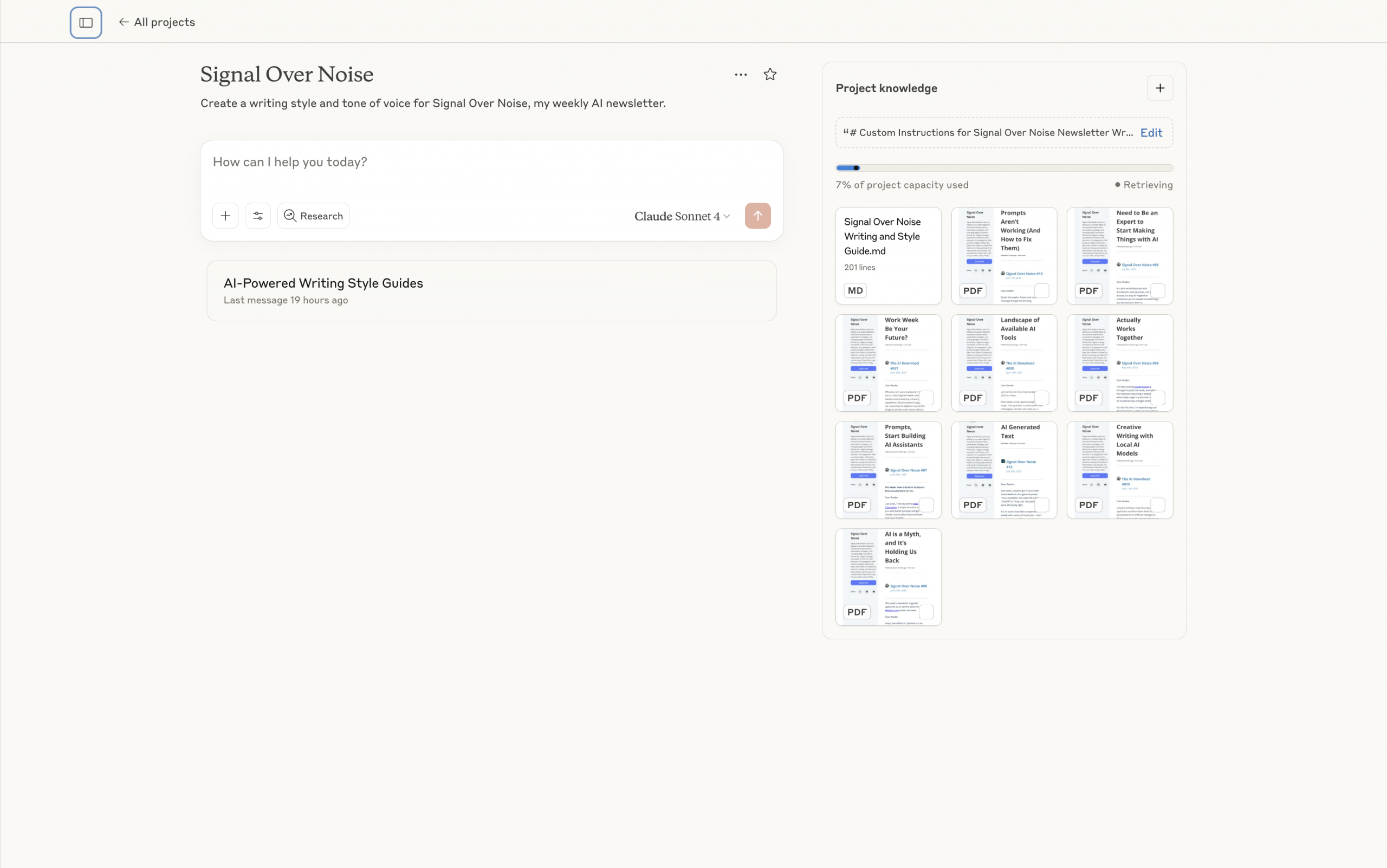I’ve been building a course on prompting and automation (along with this blog, and the newsletter) and it forced me to confront something annoying: I have no clue how to describe my own writing voice. Like, I know I have one – people tell me my stuff sounds like me – but try to explain it to an AI? Forget it.
Technical writing, course writing, book writing and blog / newsletter writing all have different affectations from how I’ve chosen to write them over the years, but damned if I’ve been able to pin them down myself.
So the other week I gave Claude a copy of my Think Like a Coder book manuscript, and asked it to create a writing style guide for me. It came back with a 2500 word guide including the following headings:
- Core Voice & Audience
- Language Patterns
- Voice Characteristics
- Structural Approaches
- Pedagogical techniques
- Formatting and Presentation
- Error Prevention and Learning
- Assessment and Feedback
- Implementation Guidelines

Pretty thorough. And honestly, kind of weird reading Claude’s analysis of how my brain works. Like having someone explain your own personality back to you. I thought I would then take this one step further and try to a) get Claude to identify my newsletter writing style and, b) weave it into the existing writing and style guide it created for me.
That ended up being a mistake, as subsequent content ended up being a jumble of meandering, directionless tone. Turns out you can’t just mash different writing styles together and hope for the best. Who knew?
I’ve since trained Claude on five or so of my favourites examples of my newsletter and created a new writing and style guide just for Signal Over Noise.
One feature I like about all three guides I created is the Quality Control / Implementation guide, which demands more accountability of me. Because apparently I needed an AI to tell me to hold myself to my own standards:
Quality Checklist
Before publishing, ask yourself:
Content Quality
- Is this based on actual hands-on experience?
- Would I personally recommend this to a friend?
- Does this help readers separate signal from noise?
- Can readers take specific action from this advice?
Voice & Style
- Does this sound like me having a conversation?
- Have I acknowledged limitations and uncertainties?
- Am I being honest about failures and challenges?
- Would I be comfortable reading this out loud?
Reader Value
- Does this save readers time or help them make better decisions?
- Is the practical value clear from the beginning?
- Have I avoided wasting words on obvious points?
- Does this feel worth the reader’s Friday morning attention?
Naturally, after creating this guide, I asked Claude to help create the project instructions too, and since then it has started to check that I’m holding myself and my content to the principles and rules set out by the guide. So now I have an AI assistant that’s basically become my writing coach.
The irony isn’t lost on me.
